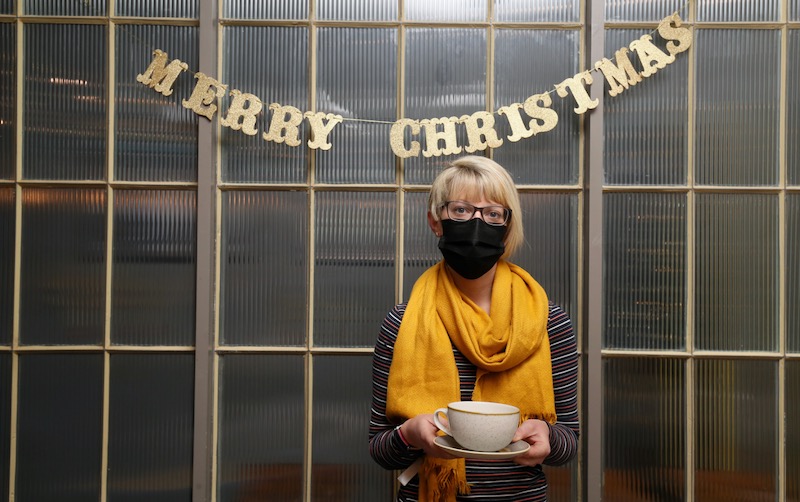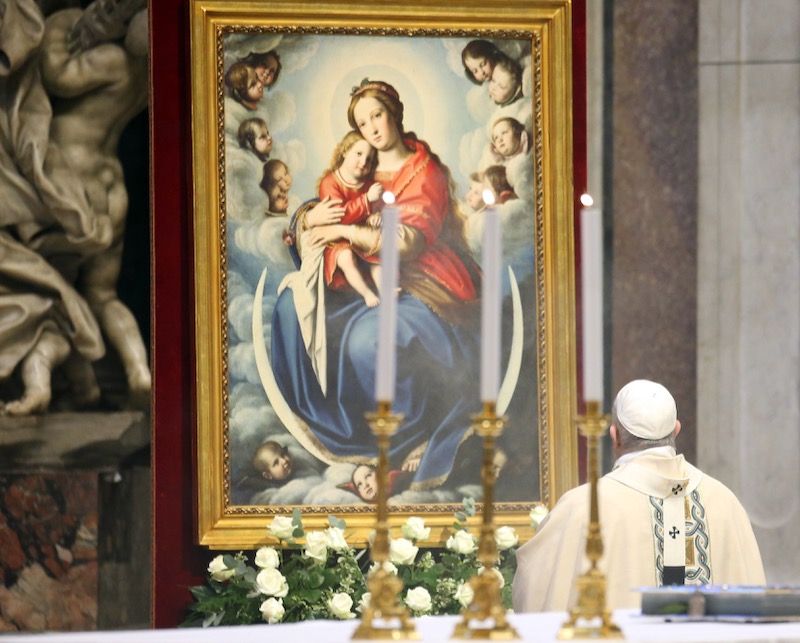Pope Francis says countries with female leaders have handled the Covid-19 pandemic better than others and that he has increased the number of women in decision making roles in the Vatican because they are “much better administrators than men”.
The Jesuit Pope made his remarks in a new book that sets out his vision for a post-Covid world with a strong focus on social, economic and political issues.
In addition to discussing the role of women, Pope is scathing about anti-maskers who he describes as “victims only in their own imagination”, as well as Catholics who “turned into a cultural battle what was in truth an effort to ensure the protection of life”.
He enters the debates about the pulling down of statues during the antiracist riots of the summer 2020. While applauding the defence of human dignity in the protests, he objects to what he sees as the attempt to “purify the past” by “amputating history”. Better to learn from the shame of the past than to try to “cancel” it, he says.
And he also mentions the “poor Uighurs” as one of the “persecuted peoples” of our time. This may be the first time he has done so. The pope has been criticised in some quarters for his silence over the Chinese persecution of the Uighurs.
On women, he says: “The countries with women as presidents or prime ministers have on the whole reacted better and more quickly than others, making decisions swiftly and communicating them with empathy.”
His remarks come in his new book Let Us Dream, written in conversation with Austen Ivereigh, the papal biographer and a former deputy editor of The Tablet.
His comments echo the plaudits given to female leaders in countries such as New Zealand, Germany, Iceland, Taiwan and Finland for their handling of Covid-19, often placed in sharp contrast with strongmen populist leaders who have tended to use a narrative of blame and struggled to manage the crisis.
In the book, Francis suggests that “the perspective women bring is what the world needs at this time”, and cites two UK-based female economists as offering the fresh thinking about the economy needed in light of the pandemic.
They include Mariana Mazzucato, at University College London, an influential thinker who argues the role of the state is vital in helping business, and Kate Raworth, of the University of Oxford, who pioneered the “doughnut economics” framework which protects people and the planet. Both economists have advised the Vatican’s Covid-19 commission.
When it comes to female roles in the Church, Francis writes that “allowing women’s perspectives to challenge existing assumptions” is something he has tried to focus on as Pope. He says appointing women to positions where they can “shape the culture” and “influence the vision and mindset” of the Church’s central bureaucracy.
Throughout his pontificate, Francis has sought to women to leadership positions in the Roman Curia, and also in advisory, board level positions on Vatican bodies including to the council which oversees finances.
“I chose these particular women because of their qualifications but also because I believe women in general are much better administrators than men,” he said of the financial council appointments, which included former UK cabinet minister Ruth Kelly. “They understand processes better, how to take projects forward.” He said that from his time in Argentina, he realised that “the advice of women in pastoral and administrative councils was more valuable than that of many men.”
Despite these efforts, however, the Pope has been criticised for not doing more to include women and for using outdated or non-inclusive language. Francis, who will turn 84 next month, admits that using the term “housewives” to describe women can come across as “demeaning”, but stresses the phrase in Spanish means “the art of household management”.
He makes it clear that female leadership in the Church cannot simply be equated with what happens in the Vatican or on “specific roles”. While the Pope has opened up discussions about the possibility of women deacons, he stresses that leadership should not be equated with inclusion into the ranks of the clergy.
“Perhaps because of clericalism, which is a corruption of the priesthood, many people wrongly believe that Church leadership is exclusively male,” he writes. “But if you go to any diocese in the world you’ll see women running departments, schools, hospitals, and many other organisations and programs; in some areas, you’ll find many more women than men as leaders.”
He adds: “To say they aren’t truly leaders because they aren’t priests is clericalist and disrespectful.”
Francis’ new book is his latest attempt to try and influence the world’s post-pandemic response. Its release came soon after the Economy of Francesco event in Assisi, an event which brought together more than 2,000 young people gathered to discuss ways to reconfigure the global economy and two months after the Pope’s encyclical on human fraternity, Fratelli Tutti.
Speaking at the end of the event, Francis warned that the worst reaction to the passing of the pandemic would be a return to “feverish consumerism and forms of selfish self-protection” while protecting the environment will demand a “change in lifestyle, models of production and consumption, and established structures of power.”
In Let Us Dream the Pope outlines in detail his up for a people-focussed politics focussed on community organising and more new inclusive form of globalisation.
Francis reiterates his support for a Universal Basic Income, which he says “could reshape relations in the labour market, guaranteeing people the dignity of refusing employment terms that trap them in poverty.” The Pope adds that a basic income – an unconditional flat payment for all citizens - can “remove the stigma of welfarism” and “help free people to combine earning wages with giving time to the community.”
In the wide-ranging book, the Pope addresses the killing of George Floyd, the 46-year-old unarmed black man who died after a police officer knelt on his neck, which the Francis describes as ”horrendous” and the protests afterwards as a sign of ”healthy indignation”.



 Loading ...
Loading ...